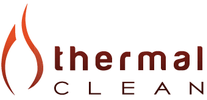Bed bug infestations are more than an inconvenience in rental properties — they represent a serious legal and financial risk. For property managers in Denver and throughout Colorado, understanding the legal obligations around pest control and tenant safety is crucial. Mishandling a bed bug complaint can damage tenant trust, result in property damage, and potentially lead to costly litigation.
With urban pest pressure increasing and tenant awareness growing, it’s essential for property owners and managers to be informed, responsive, and proactive. Bed bugs spread easily between units, and because of their elusive nature, they’re often not discovered until they’ve already taken hold. Failing to act decisively can create not only health concerns but also potential violations of local housing codes and landlord-tenant regulations.
This guide outlines what property managers need to know about legal exposure, best practices in responding to infestations, and how to implement building-wide prevention strategies that protect your tenants and your investment.
Understanding Bed Bug Responsibilities in Rental Properties
In Colorado, rental housing must meet the standard of “habitability,” meaning it must be fit for human occupation. While state law does not explicitly name bed bugs, these pests are widely considered a threat to a habitable living environment. In multifamily buildings, the risks are compounded due to shared walls, pipes, and HVAC systems, allowing infestations to move quickly between units.
Property managers have a duty to provide safe, clean, and pest-free living conditions. When a tenant reports bed bugs, it is the landlord’s responsibility to address the situation in a timely and effective manner. Delays or inadequate responses can open the door to claims related to neglect, breach of lease, or code violations — particularly if tenants are forced to vacate their homes due to unresolved infestations.
Colorado’s housing laws require that landlords repair hazardous conditions that impair habitability. Legal action may arise if a property manager ignores or inadequately handles a tenant’s complaint, particularly if the problem spreads or persists over time.
Why Inaction Increases Legal Exposure
Failing to properly manage a bed bug issue can result in several business consequences for property managers. While not every complaint escalates to a legal dispute, mishandling a report — whether by delaying action, using improper treatment methods, or not communicating clearly with tenants — increases the likelihood of tenant dissatisfaction, code violations, or involvement by regulatory bodies.
Common liability triggers include:
- Dismissing tenant reports without conducting a professional inspection
- Failing to treat the surrounding or adjoining units in shared-wall properties
- Using ineffective DIY treatments instead of licensed pest control
- Not maintaining documentation of communication and treatment efforts
Municipal housing inspectors in Denver can issue citations for persistent infestations or for conditions deemed uninhabitable. These cases can escalate quickly, particularly if other residents are affected or if tenants document failed attempts to receive assistance.
How to Handle Bed Bug Complaints Professionally and Legally
When a tenant alerts you to a possible infestation, your response should follow a consistent and well-documented protocol. Timely communication, professional inspections, and comprehensive treatment are essential to demonstrating due diligence and maintaining compliance.
Start by documenting the tenant’s report, including the date, time, and nature of the concern. Schedule a certified pest inspection to verify the presence of bed bugs. If confirmed, notify all potentially affected tenants discreetly and respectfully, with clear information on next steps and treatment timelines.
Licensed pest control professionals should carry out inspections and remediation. DIY solutions and over-the-counter sprays are often ineffective and may violate lease terms or local regulations if used improperly. Avoid blaming the tenant or suggesting fault — even if the source is unclear, focusing on resolution helps maintain professionalism and avoids conflict.
Best practices for bed bug complaint response:
- Keep all communication in writing and document inspection results
- Provide tenants with preparation instructions and treatment timelines
- Ensure pest professionals are licensed and experienced in bed bug remediation
- Conduct follow-up inspections after treatment to verify effectiveness
Tenants should be provided with preparation instructions if treatment is necessary. It’s important to offer support during this time, including clear expectations, timelines, and potential follow-ups. Keep all communications in writing, and ensure tenants understand their role in post-treatment monitoring.
Implementing Policies That Minimize Risk
A proactive approach is the most reliable way to reduce the chances of infestations and prevent legal disputes. This includes reviewing lease agreements, partnering with pest professionals, and educating tenants from the beginning of their residency.
Lease documents should include a pest policy that outlines the roles and responsibilities of both the tenant and the landlord regarding infestations. While lease language cannot override state law, it can clarify expectations for reporting, cooperation during treatment, and property access for inspections.
Establishing a relationship with a licensed pest control company ensures you have immediate access to experienced technicians who are equipped to handle bed bug cases effectively. These providers can offer preventive inspections, discreet treatment services, and documentation to support your legal and operational records.
Core policies that reduce liability:
- Include pest control clauses in lease agreements and renewal packets
- Schedule annual or semi-annual pest inspections across common areas
- Provide new tenants with educational materials about bed bug prevention
- Keep detailed treatment logs and tenant communications for future reference
Building-wide inspections and pest audits are another valuable prevention method, particularly in multifamily communities where one unit’s problem can quickly become a building-wide issue. Early detection is always more affordable — and legally defensible — than delayed action.
Why Thermal Heat Treatment Is the Best Practice in Rental Settings
Heat treatment, also known as thermal remediation, is a highly effective and legally sound method for eradicating bed bugs. This process uses professional-grade heaters to raise the temperature in affected rooms to a level that is lethal to all bed bug life stages, including eggs.
For property managers, heat treatment offers key advantages. It usually requires only one visit, limits the use of chemicals, and is safe for families and pets when administered correctly. Unlike chemical treatments that often require multiple applications, heat treatment delivers consistent, fast results that reduce tenant disruption and potential complaints.
Benefits of thermal heat treatment for property managers:
- Kills all stages of bed bugs in one treatment session
- Reduces tenant exposure to chemical pesticides
- Minimizes repeat complaints and costly follow-up services
- Supports legal documentation of treatment and tenant protection efforts
Because the process is documented, it also supports your legal defense should a tenant claim ongoing issues. Providing a treatment certificate from a licensed provider demonstrates that you took the necessary steps to resolve the problem using proven methods.
Protecting Tenants and Your Business Starts With Policy, Not Reaction
For Denver property managers, understanding the legal landscape around bed bugs isn’t optional — it’s part of responsible property management. From habitability laws to pest control best practices, being informed and prepared can protect you from liability, reduce tenant turnover, and improve the overall health of your community.
Preventing bed bug problems starts with education, consistent policy, and access to professional support. A trusted pest control partner, regular inspections, and well-crafted lease terms offer protection for both residents and real estate assets. The sooner you act, the less risk you carry.
Proactive management not only avoids legal entanglements — it builds trust, retains tenants, and preserves the reputation of your property for years to come.

